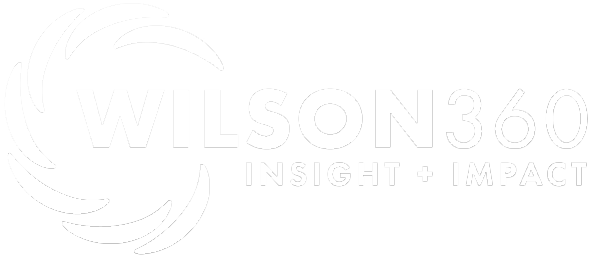
Smarter Estimating, Stronger Teams
A Conversation with Bobyard's Michael Ding
Some aspects of work leave us energized, while others leave us drained. For many landscape businesses, estimating falls into the second category. It’s repetitive, time-consuming, and slow to scale.
But that’s precisely what drew Michael Ding, founder and CEO of Bobyard, to it. A Stanford-trained technologist, Michael saw how AI could turn one of the industry’s most painful bottlenecks into a smarter, faster, and more sustainable process.
We caught up with him ahead of TLR25, where Bobyard will join the Wilson360 annual event, to share how AI is reshaping the way landscape companies estimate—and why this shift is just the beginning.
AI is streamlining takeoffs and estimates, unlocking time for teams, and reshaping how landscaping companies win business.
Why focus Bobyard on landscaping?
Michael Ding:
We started by training AI models across multiple trades—mechanical, plumbing, electrical—but landscaping stood out. The plans are complex. The takeoff counts are huge. Tens of thousands of items per project, in some cases.
That made it a clear opportunity for automation. People don’t love spending hours counting plants, and those hours add up fast. We saw a clear opportunity to remove that burden, improve accuracy, and give teams their time back.
What does AI-powered estimating look like in practice?
Michael:
It’s like handing your plan sets to an extremely fast, extremely accurate junior estimator. The model reads the drawings, understands the symbols and quantities, and automatically builds the takeoff.
It’s not about replacing your team—it’s about helping them focus on higher-value work. Many of our clients save 50% or more on estimating time without hiring additional staff.
How are your most successful clients using the time they’re saving?
Michael:
It varies, but the pattern is clear—they’re reinvesting that time into growth. That might mean bidding more jobs, improving margins, or simply giving their team a more manageable workload. One of the most overlooked benefits is energy. When low-leverage tasks don’t bog down your top people, they bring more creativity, focus, and accountability to the table.
For leaders who feel behind on AI, where should they start?
Michael:
Start small. This doesn’t have to be overwhelming. If you’ve ever typed instructions or used a search bar, you already know how to use AI.
Pick one area of your business where you’re losing time—writing, estimating, even organizing files—and test how AI can support that task. It’s about learning, not replacing. Once you see what’s possible, you’ll know where to go next.
Why is this important now?
Michael:
Because the landscape is shifting. The companies adopting AI aren’t just moving faster—they’re becoming more efficient, more strategic, and more scalable.
We’re well past the early-adopter phase. This is already happening. And the longer companies wait, the harder it becomes to catch up.
Looking Ahead
Bobyard isn’t just solving a technical problem—it’s helping landscape companies scale smarter by freeing up time, sharpening focus, and keeping great people engaged in meaningful work.
Michael will be joining us at Wilson360’s Thought Leaders Retreat in July, where peers and partners across the industry will gather to exchange ideas, challenge assumptions, and build what’s next—together.
Because success isn’t just about growing faster—it’s about making space for the work that matters most.
Bobyard is a modern takeoff and estimating platform powered by AI—built specifically for landscaping professionals. Learn more at bobyard.com
Wilson360 helps landscape companies grow with intention—through strategic peer groups, coaching, and real-world leadership tools. Learn more at wilson-360.com

